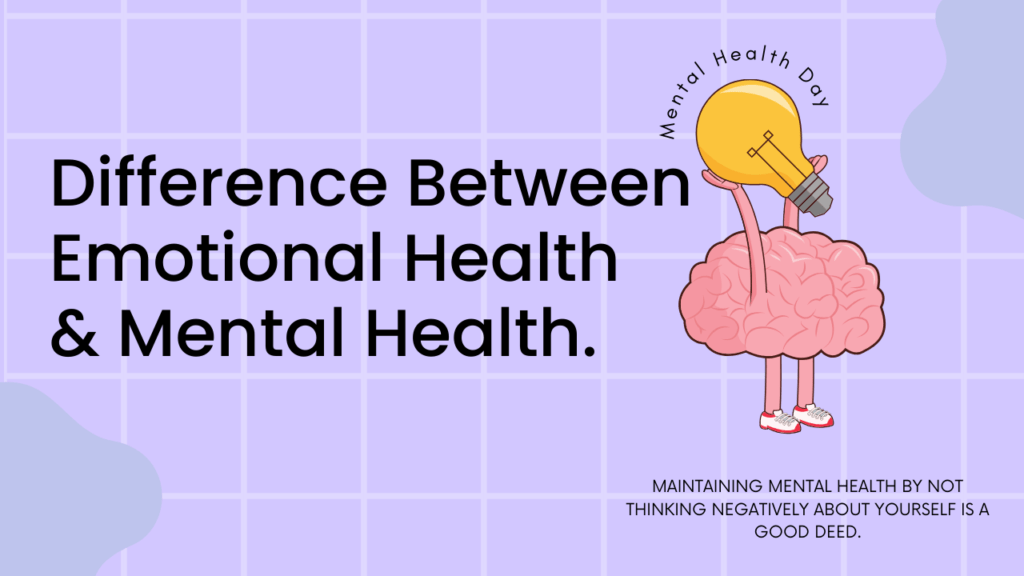As a student, you’re dealing with a pretty complex situation where your mental health can affect how you experience school. The impact extends beyond just academics; it seeps into your social interactions, emotional well-being, physical health, and overall engagement.
Picture a scenario where your mental state plays a pivotal role in shaping your daily interactions, academic performance, and even long-term outcomes.
How does the connection between mental health and education shape your experience in school?
Academic Performance
Maintaining good mental health is necessary for you to perform well academically in school.
Research shows that mental health directly impacts your ability to focus, retain information, and manage stress effectively.
When struggling with mental health issues like anxiety or depression, your academic performance may suffer due to decreased concentration and motivation.
These challenges can lead to poor grades, missed assignments, and difficulty following along in class.
Seeking support from counselors, therapists, or mental health professionals can greatly improve your academic outcomes by providing strategies to cope with stress, enhance focus, and maintain a healthy mindset.
Social Interactions
Effective social interactions play an essential role in shaping your overall mental well-being as a student.
Engaging positively with peers fosters a sense of belonging, reduces feelings of loneliness, and enhances your self-esteem.
Research shows that students who’ve strong social connections tend to have better emotional regulation, improved academic performance, and are more resilient to stress.
Building healthy relationships also provides a support system during challenging times, offering comfort and understanding.
On the contrary, social isolation can lead to increased levels of anxiety, depression, and even physical health issues.
By actively participating in social activities, forming meaningful connections, and practicing effective communication, you can nurture your mental health and create a supportive environment for yourself in school.
Emotional Regulation
Developing healthy emotional regulation skills is essential for managing stress and maintaining mental well-being as a student.
It allows you to navigate the ups and downs of academic life with resilience.
Check out the table below to understand the key aspects of emotional regulation:
| Aspect | Description | Importance |
|---|---|---|
| Self-awareness | Recognizing your emotions and their triggers | Helps in understanding and controlling reactions |
| Coping strategies | Learning healthy ways to deal with stress | Reduces the impact of negative emotions |
| Emotional support | Seeking help from friends, family, or counselors | Provides a safety net during challenging times |
Practicing emotional regulation techniques empowers you to handle academic pressures effectively.
Physical Health
Your physical health has a significant impact on your academics, affecting your ability to concentrate, retain information, and perform well in school.
Poor physical health can also lead to increased absenteeism and decreased participation in classroom activities, hindering your overall learning experience.
It’s important to have access to adequate support and resources to address physical health issues effectively and make sure that you can fully engage in your education.
Impact on Academics
The impact of mental health on students’ academic performance and physical well-being can’t be overstated.
When struggling with mental health issues, such as anxiety or depression, it can greatly affect your ability to focus, concentrate, and retain information in school.
Research has shown that students facing mental health challenges may experience difficulties in completing assignments, meeting deadlines, and performing well on exams.
These academic setbacks can then lead to added stress and feelings of inadequacy, creating a harmful cycle that further impacts your physical health.
It’s important to recognize the connection between mental health and academic performance, seeking support from counselors, teachers, or healthcare professionals to help manage these challenges and prioritize your well-being.
Attendance and Participation
Struggling with mental health challenges can greatly impact your attendance and active participation in school, directly affecting your physical well-being.
When your mental health is not in a good place, it can be challenging to find the motivation to attend classes or engage in activities.
This can lead to a decline in your physical health due to lack of exercise, proper nutrition, and social interactions.
Below is a table illustrating how mental health can influence attendance and participation in school:
| Effects of Mental Health on Attendance and Participation |
|:——————————————————-:|:————————————–:|:————————————:|
| Increased Absenteeism | Decreased Engagement in Activities | Poor Physical Health |
| Feelings of Isolation | Lack of Interest | Fatigue and Lack of Energy |
| Difficulty Concentrating | Withdrawal from Social Interactions | Weakened Immune System |
Support and Resources
In addressing the physical health aspect of mental health support and resources, it’s important to emphasize the role of accessible healthcare services in promoting overall well-being for students.
Regular check-ups, access to mental health professionals, and resources for physical wellness are vital for maintaining a healthy mind and body.
Schools should work to provide students with information on local healthcare services, facilitate access to counseling or therapy, and promote physical activity and nutrition.
Research shows that students who’ve access to thorough healthcare services are more likely to succeed academically and have better mental health outcomes.
Attendance and Engagement
With mental health challenges impacting students, maintaining consistent attendance and active engagement in school activities can become increasingly difficult.
This can have significant repercussions on academic performance and overall well-being.
Here are some ways in which mental health can affect students’ attendance and engagement:
- Increased Absenteeism: Mental health issues can lead to more frequent absences from school.
- Decreased Participation: Students may feel disinterested or detached, leading to reduced engagement in classroom discussions and extracurricular activities.
- Difficulty Concentrating: Mental health struggles can make it hard to focus during lessons or complete assignments, affecting overall involvement in school tasks.
- Avoidance Behavior: Students may avoid social interactions or school events due to anxiety or depression, impacting their overall engagement with the school community.
Cognitive Functioning
Mental health challenges can greatly influence your cognitive functioning, impacting your ability to process information and excel in academic tasks.
Research shows that conditions like anxiety and depression can impair attention, memory, and decision-making skills, hindering your learning experience.
When your mental health is compromised, it can be harder to focus in class, understand complex concepts, and perform well on exams.
This can lead to feelings of frustration and inadequacy, creating a cycle that further affects your mental well-being.
Recognizing the connection between mental health and cognitive functioning is essential in addressing academic struggles effectively.
Taking support from school counselors, therapists, or mental health professionals can help you manage these challenges and improve your overall academic performance.
Sleep Patterns
Understanding the relationship between your sleep patterns and academic performance is fundamental for optimizing your learning experience.
Your sleep habits play an important role in how well you can focus, retain information, and problem-solve during your studies.
Here are some key points to keep in mind:
- Consistent sleep schedule: Maintaining a regular sleep routine helps regulate your body’s internal clock.
- Quality over quantity: Focus on the quality of your sleep rather than just the number of hours.
- Avoiding stimulants: Steer clear of caffeine and electronics before bedtime to improve your sleep quality.
- Creating a sleep-friendly environment: Ensure your sleeping space is dark, quiet, and comfortable for better rest.
Stress Management
You may find yourself facing various stressors in your school environment, from academic pressures to social challenges.
It’s crucial to explore effective coping strategies that can help you manage stress and maintain your mental well-being.
Remember to seek out and utilize support systems, such as friends, family, or mental health professionals, to navigate through stressful times.
Stressors in School
Managing the multitude of stressors in school can be challenging for students, impacting their overall well-being and academic performance.
It’s essential to recognize these stressors to address them effectively.
Some common stressors in school include:
- Academic pressure from exams and assignments
- Social challenges like peer relationships and bullying
- High expectations from teachers and parents
- Balancing extracurricular activities with schoolwork
Research shows that these stressors can lead to anxiety, depression, and decreased motivation in students.
By acknowledging and understanding these stressors, educators and parents can work together to support students in navigating these challenges effectively.
Coping Strategies
Students can develop effective coping strategies to manage stress and improve their mental well-being while handling the challenges of school.
One powerful coping strategy is mindfulness meditation, which can help you stay present and reduce anxiety.
Additionally, physical exercise has been shown to release endorphins, which can elevate your mood and reduce stress levels.
Setting realistic goals and breaking tasks into smaller, manageable steps can also prevent feelings of being overwhelmed.
Journaling your thoughts and emotions can provide a healthy outlet for processing stress.
Seeking social support from friends, family, or a counselor can offer a different perspective and emotional validation.
Support Systems
Effective stress management requires building strong support systems that can help you navigate the challenges of school and maintain good mental health.
Support systems play an essential role in providing you with the necessary resources and guidance to cope with stress effectively.
Here are some key elements of a supportive network:
- Peer Support: Talking to friends or classmates can offer a sense of camaraderie and understanding.
- Family Support: Seeking support from family members can provide a sense of security and comfort during stressful times.
- Mental Health Services: Accessing professional help such as counseling or therapy can equip you with coping strategies.
- Self-Care Practices: Engaging in activities like exercise, mindfulness, or hobbies can help you relax and recharge.
Support Systems
The presence of strong support systems can greatly impact your mental well-being in school.
Having teachers, counselors, friends, and family members who understand and offer assistance can make a significant difference.
Research shows that students with robust support systems are better equipped to cope with stress, anxiety, and other mental health challenges.
When you feel supported, you may be more likely to seek help when needed and manage academic pressures more effectively.
Additionally, knowing there are people you can turn to for guidance and encouragement can boost your self-esteem and overall resilience.
Building and nurturing these support networks is essential for maintaining good mental health and thriving academically.
Long-Term Outcomes
Positive mental health outcomes in school can have a lasting impact on your overall well-being and success in various areas of life.
When mental health is prioritized and supported during your school years, it sets the foundation for a brighter future.
Consider the following long-term outcomes:
- Improved career prospects and job satisfaction
- Stronger relationships and social connections
- Better physical health and overall quality of life
- Enhanced resilience and coping skills for life’s challenges
Research shows that investing in mental health early on can lead to significant benefits well into adulthood.
By prioritizing your mental well-being in school, you aren’t just improving your academic performance but also laying the groundwork for a fulfilling and successful life ahead.
Conclusion
The impact of mental health on students in school is significant and far-reaching.
From academic performance to social interactions and physical health, mental well-being plays a vital role in shaping a student’s overall experience and success in the educational setting.
By acknowledging the significance of mental health support, implementing effective coping strategies, and fostering positive social connections, schools can create a more supportive environment for students to thrive and succeed in the long term.

